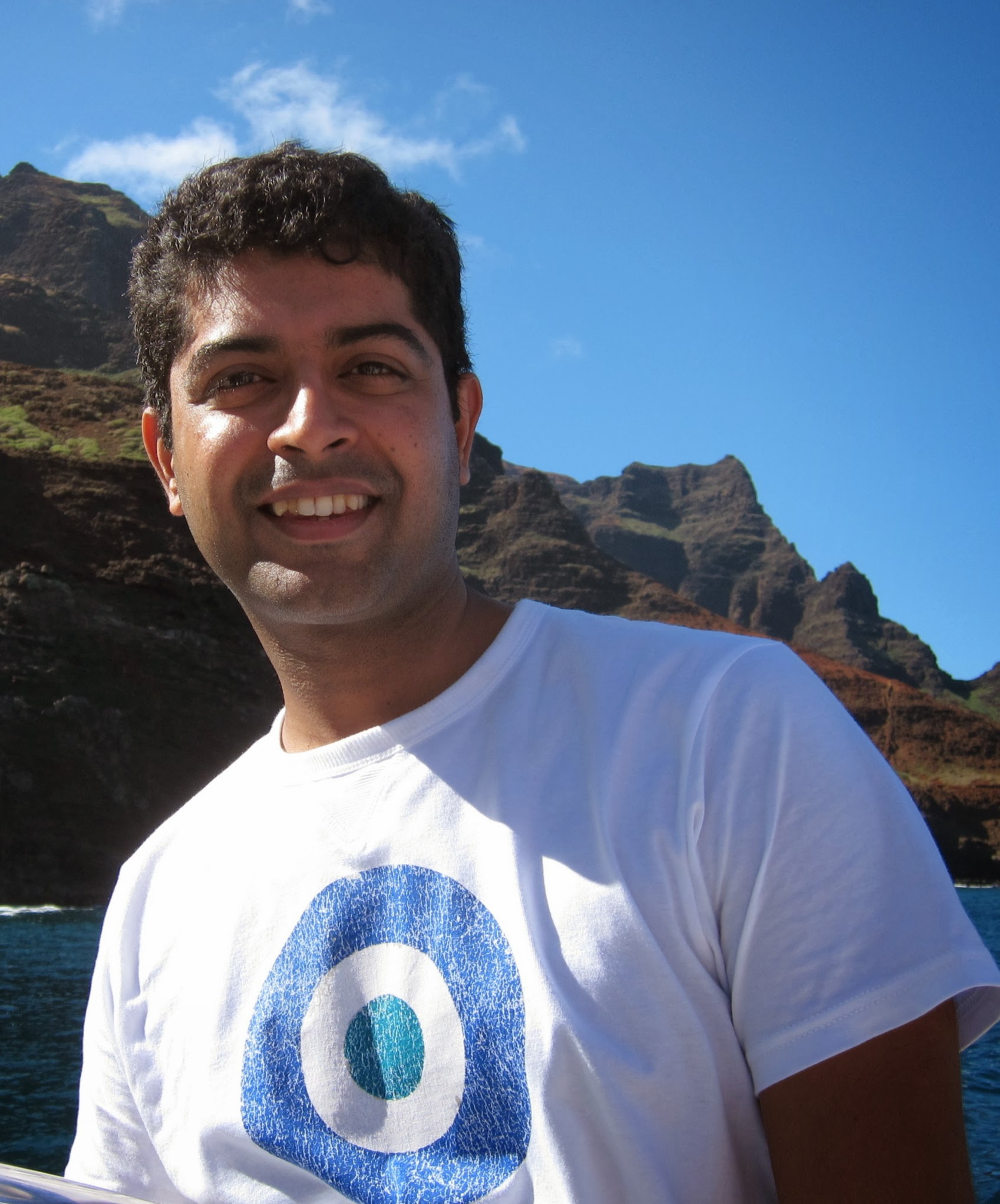Every so often, we’ll chat with an alum about what they do and how they got there. Today we’re talking with software engineer Akshay Java M.S. ‘03, computer science, Ph.D. ‘08, computer science, about his career and work for Google.
 Name: Akshay Java
Name: Akshay Java
Job Title: Software Engineer for Google
Grad year: M.S. ‘03, computer science, Ph.D. ‘08, computer science
Q: Why was UMBC your university of choice?
UMBC has an excellent CSEE program that emphasizes on both research and core curriculum. During my undergraduate studies I had a keen interest in artificial intelligence and information retrieval. The opportunity to learn from the very best minds in the field is what made UMBC my top choice.
Q: What did you like most about UMBC during your time studying here?
During almost seven years at UMBC, I always felt a part of the close knit community. It is where I found close friendships that have lasted through the years and made strong connections both personally and professionally. The sense of community and the support system that UMBC provides to all its students, faculty, and staff is truly what makes it unique.
Q: Was there a professor or specific class that sticks out in your mind as particularly influential?
The classes that had been the most challenging are also the ones that I learned the most from. The very first semester at UMBC, I took artificial intelligence with Dr. Marie desJardins, operating systems with Dr. Anupam Joshi, and data mining with Dr. Hillol Kargupta. It was a combination that kept me busy juggling between assignments, mid-terms, and project deadlines. All three professors pushed us to really learn the core concepts and to this day I find myself going back to these fundamental topics. The first semester was really the foundation for the later courses and help me significantly.
My advisor, Dr. Tim Finin, has been the most influential figure in my education. Working with ebiquity research group at UMBC, I had the opportunity to focus on cutting-edge research topics and collaborated with several professors in the department. Dr. Finin always encouraged us to think out of the box and pursue challenging computer science problems with an eye for practical application.
Q: How did you create your startup?
I started Percept Labs with my co-founder Amir Padovitz, who was also my colleague at Microsoft. We started our company with the goal of building something that we felt is missing in our experience. Both of us are travel junkies and data enthusiasts, so we figured that we could combine the two and build something that would harness the power of the web and wisdom of the crowd to help us discover new travel content. Using large-scale data mining and machine learning techniques we built the technology that provides a personalized travel discovery engine.
Q: Did UMBC provide you with any tools that helped you pursue your own startup?
There were two key resources that UMBC provided and were the stepping stones to giving me the knowledge to pursue my own startup: First, I took an excellent class on entrepreneurship at the Alex. Brown Center for Entrepreneurship and I would highly recommend this class to anyone planning to create or work at a startup in future. It is a great course that covers every aspect of business and brought in guest speakers and CEOs who shared their knowledge and experiences.
The second important resource was the research lab I worked at while pursuing my Ph.D. While at ebiquity research group, faculty members encouraged us to think of practical application our research. We often collaborated with industry leaders like Microsoft, Google, IBM, and many others. Through various academic publications, grant applications, internships, fellowships, etc. we were given the skills necessary to learn how to present and communicate our work to others. This comes in handy in every phase of your professional life, be it in the industry or pitching to a venture capitalist or an angel investor.
Q: What led to your startup being acquired by Google?
Once we had launched a beta version of our product, we shared it with a close circle of friends for their feedback. In time, interest grew and we had more sign ups and our user base expanded. Throughout the process we iterated based on the feedback and suggestions we received from our users. We also actively engaged with industry experts and investors for advice and funding and were receiving interest from different companies on different aspects of the technology and experience we built. During this time, we were connected with Google and after a few discussions with them we strongly felt that this was a right fit.
Q: What is your favorite part about your job at Google?
I think the best part of my job is the opportunity to work with amazing people. The culture at Google is to think about how everything you do can make things 10 times better. From day one, everyone on your team and in the company supports you in working towards this goal. Collaborating with some of the best folks in the industry and working on hard technical problems is what makes every day fun and exciting.
Q: Are there any tips you might give to a person considering creating their own startup?
The most important factor is the team. Work with the best people you can find and the teamwork will keep you motivated when things are tough and help you face any challenge – be it technical or business related. The team also includes your advisors, lawyers, and business partners. The right team members will challenge you and support you in this incredible adventure.
With the right team in place, focus on the users with relentless dedication. Make sure your product addresses a real need and help people do something in a way that is better than anything else that exists out there. A differentiating product that provides value to a user is ultimately what will define your startup’s success.
Doing a startup will be a roller coaster ride – but remember to enjoy it! There will be days that will be exciting and others where you will feel like nothing is working out. No matter what remember to enjoy this incredible journey as it will be one that you will not forget for a long time to come.
Finally, a startup comes to life not just through your individual efforts but from a collective belief in your vision and passion. Your family, investors, advisors, and friends are all cheering for your success. Value and thank their contributions and support.
Q: Are there any words of caution you might give?
Don’t eat too many pizzas. 🙂 On a more serious note, no two startups are alike and every founder’s journey is different. Always listen to advice and feedback but ultimately, blaze your own trail. Good luck!
Tags: Akshay, Alex Brown Center for Entrepreneurship, computer engineering, desJardins, IBM, Java, Joshi, Microsoft, software, software engineering, startup



